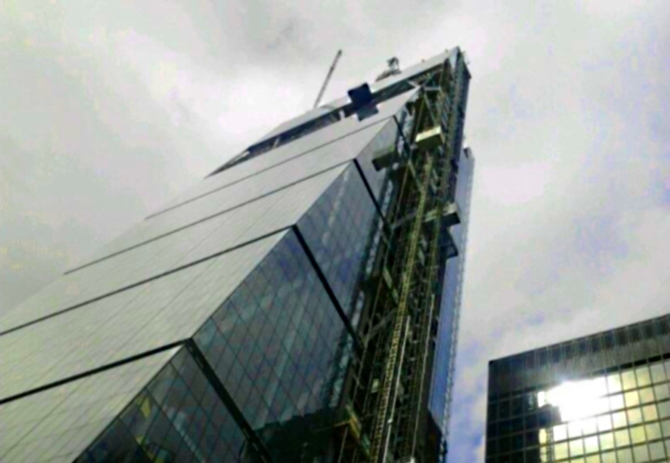British Land has posted record full-year profits of £297m. The year-on-year rise of more than eight per cent is being credited on a “burgeoning economy and continued commercial demand”.

The latest accounts show the value of its UK property portfolio had risen overall by 8.3 per cent, while its office and residential holdings, a large chunk of which are in London, jumped by 14.5 per cent.
As expected, the value of its retail property rose by just 4.4 per cent — in line with predictions that retail chains are reluctant to expand their bricks-and-mortar stores when online shopping continues to take off.
Chief executive Chris Grigg underlined his company’s confidence in the capital by saying: “In London, we see rental growth along with the letting up of completed development space being the key drivers of our office performance in the forceable future.”
Although British Land has been busy selling off its older assets, its more recent projects have also been delivering impressive returns; its 2010 development programme alone generated a profit of £608m.
It is currently involved in the construction of the high-profile Cheesegrater building (pictured) in the City and there could be more profits to come. Spurred on by rising commercial property prices, British Land has raised £1.5bn in the last 12 months on the debt markets to finance further development projects.
In contrast, British Land’s closet rival Land Securities — which is the largest commercial property company in the UK — unveiled its own pre-tax profit surge with the caution that it will no longer build new commercial space in London unless the offices have been pre-let.
Leaping from last year’s £533m, Land Securities made £1.1bn in the year to the end of March. Revenue also increased from £290m to £319.6m which, over the year, secured £26.6m of development lettings. It also made £23.6m from investment lettings and £920.4m from sales and acquisitions.
Its pre-let only decision is seen by many, however, as a signal that demand for office space in and around the City is about to peak. It is expected to rise a little further as firms expand their operations and take on more staff, but that demand will be met by projects already in the pipeline.
“In London, our building programme will continue apace as we seek to maximise the benefits from favourable market conditions, though any additional commitments in the near term will require pre-lets,” explained Robert Noel, chief executive of Land Securities.
“We expect to see a shortage of Grade A space until at least late 2016,” he added, “But the market balance beyond that will depend on the general development response to improving market conditions.”